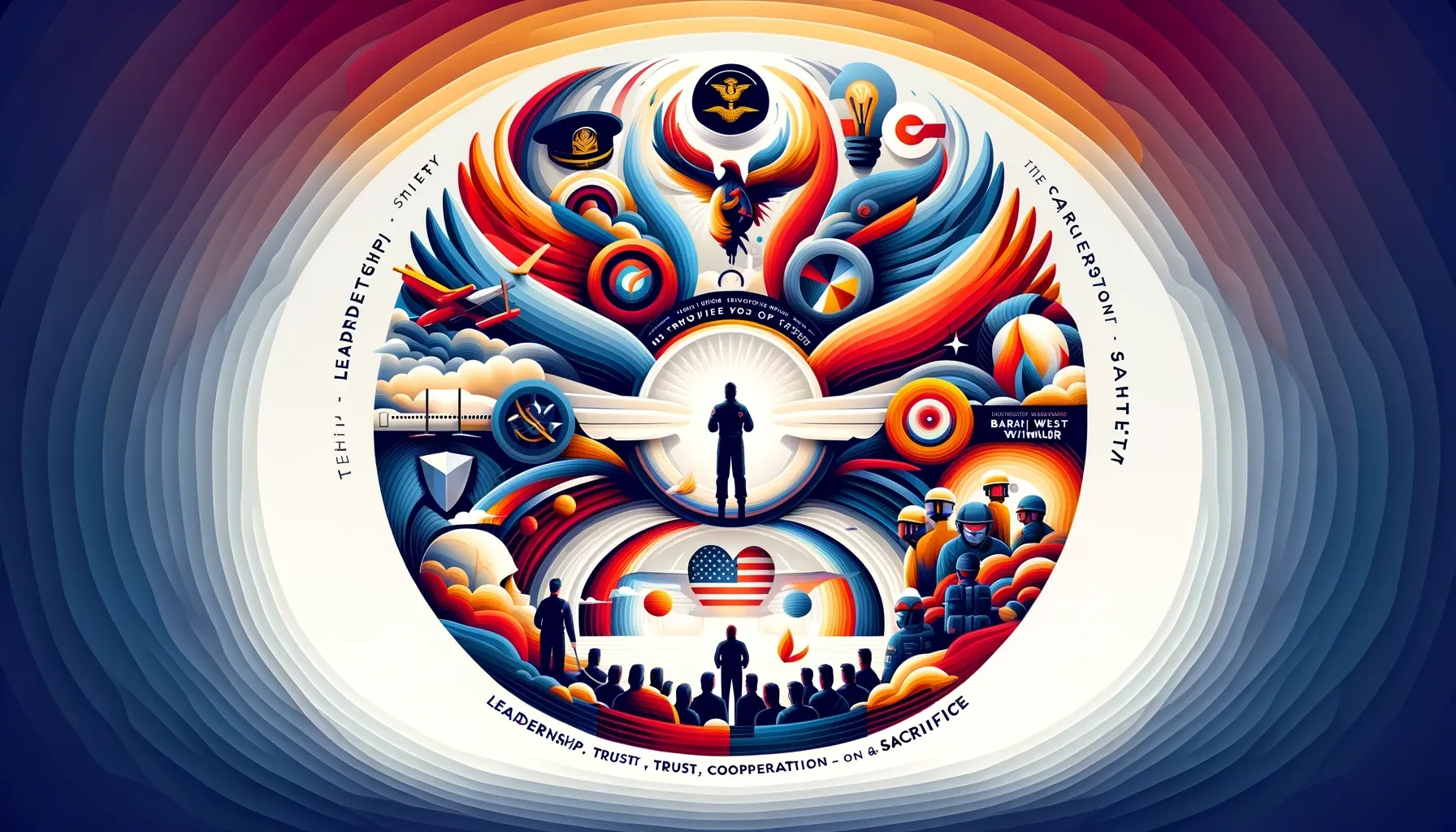On this page
David Grady's TED talk discusses an issue prevalent in modern work culture, the Mindless Accept Syndrome (MAS), which refers to the habit of accepting meeting invitations without understanding their purpose. This behavior leads to time wastage and dissatisfaction among employees. The speaker introduces a potential solution called the 'No MAS' strategy, which involves tentatively accepting meeting invitations and seeking more information about their purpose. Applying this strategy can lead to more efficient meetings and a more effective work culture.
How does it apply to you?
The 'No MAS' strategy can be applied in any work environment where meetings are prevalent. By responding tentatively to meeting invitations that lack detailed information, you can encourage more thoughtful meeting organization. This can lead to more effective and efficient meetings, and ultimately, a more productive work culture.
Applied Learning to Developer Enablement
The Chair Theft Analogy
In software development, it's important to value our time as much as we value our physical assets. Just as we would question a coworker taking our chair without explanation, we should question anything that takes away our time without providing clear value. This could include unnecessary meetings, poorly defined tasks, or interruptions that break our focus.
Introduction to Mindless Accept Syndrome (MAS)
Mindless Accept Syndrome (MAS) is a behavior where we accept meeting invitations without understanding the purpose or agenda. In a software development organization, this can lead to significant time wastage. It's important to ensure that every meeting has a clear purpose and agenda, and that all participants understand this before accepting the invitation.
Impact of Technology and Globalization on Work Culture
Globalization and information technology have changed the way we work, leading to an increase in meetings. While collaboration is essential in software development, we need to ensure that our meetings are purposeful and efficient to prevent dissatisfaction among team members.
Evidence of MAS as a Global Epidemic
Unproductive meetings are a widespread issue, as evidenced by the popularity of a YouTube video depicting a poorly run conference call. In a software development organization, this can be used as a training tool to demonstrate how not to conduct a meeting.
Public Response and Perception of Work Meetings
The widespread frustration with current meeting culture indicates a need for change. In a software development organization, every team member has the power to influence this culture and should feel empowered to suggest improvements.
Introduction to 'No MAS' Concept
'No MAS' is a strategy to tackle ineffective or unnecessary meetings. It involves putting a stop to accepting meeting invitations blindly, especially those that lack sufficient information. This can be particularly useful in a software development organization, where time is often a scarce resource.
Application of 'No MAS' Strategy
The 'No MAS' strategy involves responding tentatively to meeting invitations that lack detailed information and seeking more information about the meeting's purpose. This encourages transparency and ensures that everyone's time is used effectively.
Resulting Changes from Using 'No MAS' Strategy
Applying the 'No MAS' strategy can lead to more thoughtful meeting organization and more efficient communication methods. This can greatly benefit a software development organization by improving productivity and satisfaction among team members.
Potential Impact of 'No MAS' Strategy
The 'No MAS' strategy can lead to a more effective and efficient work culture. This can have a significant positive impact on a software development organization, leading to better respect for everyone's time and resources.
Developer Checklist
Understanding Concepts
Implementing 'No MAS' Strategy
Summary
The Chair Theft Analogy
The speaker kicks off the discussion with an analogy, describing a scenario where a coworker steals your chair without explanation. This is used to illustrate how we often let our time be taken away without questioning it, much like the unexplained chair theft. The point is to highlight how we should value our time as much as our physical assets.
Introduction to Mindless Accept Syndrome (MAS)
The speaker introduces the concept of Mindless Accept Syndrome (MAS), a term coined to describe the habitual acceptance of meeting invitations without understanding the purpose or agenda of the meeting. This behavior is seen as a major contributor to time wastage in the workplace and is likened to a global epidemic.
Impact of Technology and Globalization on Work Culture
The speaker discusses how globalization and pervasive information technology have dramatically changed the way we work, leading to an increase in meetings. While meetings and collaboration are essential for any enterprise, the lack of purposeful and efficient meetings has led to dissatisfaction among employees.
Evidence of MAS as a Global Epidemic
As evidence of MAS being a global epidemic, the speaker refers to a video he posted on YouTube, which humorously depicts a poorly run conference call. The video resonated with many viewers worldwide, indicating that the problem of unproductive meetings is a widespread issue. The video has been utilized by major companies as a training tool to demonstrate how not to conduct a meeting.
Public Response and Perception of Work Meetings
The speaker shares various comments from viewers of his YouTube video, highlighting the widespread frustration and dissatisfaction with current meeting culture. Many comments express a feeling of powerlessness in changing the status quo, which the speaker argues is not the case.
Introduction to 'No MAS' Concept
'No MAS' is a term derived from Spanish, translating to 'enough already, make it stop'. This concept is a simple strategy to tackle ineffective or unnecessary meetings. The idea is to put a halt to accepting meeting invitations blindly, especially the ones that lack sufficient information.
Application of 'No MAS' Strategy
The 'No MAS' strategy is applied by responding tentatively to meeting invitations that lack detailed information. This response is a way to express interest in the meeting while seeking more information about its purpose. It involves reaching out to the meeting organizer, expressing enthusiasm to support their work, and asking about the meeting's goal and how one can contribute to it.
Resulting Changes from Using 'No MAS' Strategy
Applying the 'No MAS' strategy consistently and respectfully can encourage people to be more thoughtful when organizing meetings. It can lead to more detailed meeting invitations, allowing invitees to make informed decisions about their participation. It might even prompt organizers to consider more efficient methods of communication, like emails for status updates, instead of conference calls.
Potential Impact of 'No MAS' Strategy
The 'No MAS' strategy can trigger a change in behavior, not just in meeting organizers, but also among attendees. As people become more considerate about their meeting habits, it can lead to a more effective and efficient work culture. The concluding joke suggests that this strategy might also influence people to respect others' space and resources.
FAQs
What is the Chair Theft Analogy? The Chair Theft Analogy describes a scenario where a coworker steals your chair without explanation. It is used to illustrate how we often let our time be taken away without questioning it, much like the unexplained chair theft. The point is to highlight how we should value our time as much as our physical assets.
What is the concept of Mindless Accept Syndrome (MAS)? Mindless Accept Syndrome (MAS) is a term coined to describe the habitual acceptance of meeting invitations without understanding the purpose or agenda of the meeting. This behavior is seen as a major contributor to time wastage in the workplace.
How have technology and globalization impacted work culture? Globalization and pervasive information technology have dramatically changed the way we work, leading to an increase in meetings. While meetings and collaboration are essential for any enterprise, the lack of purposeful and efficient meetings has led to dissatisfaction among employees.
What evidence is there of MAS being a global epidemic? As evidence of MAS being a global epidemic, the speaker refers to a video he posted on YouTube, which humorously depicts a poorly run conference call. The video resonated with many viewers worldwide, indicating that the problem of unproductive meetings is a widespread issue.
What is the public response and perception of work meetings? The public response and perception of work meetings is largely negative, with many people expressing frustration and dissatisfaction with current meeting culture. Many feel powerless to change the status quo.
What is the 'No MAS' concept? 'No MAS' is a term derived from Spanish, translating to 'enough already, make it stop'. This concept is a simple strategy to tackle ineffective or unnecessary meetings by putting a halt to accepting meeting invitations blindly, especially those that lack sufficient information.
How is the 'No MAS' strategy applied? The 'No MAS' strategy is applied by responding tentatively to meeting invitations that lack detailed information. It involves reaching out to the meeting organizer, expressing enthusiasm to support their work, and asking about the meeting's goal and how one can contribute to it.
What changes can result from using the 'No MAS' strategy? Applying the 'No MAS' strategy consistently and respectfully can encourage people to be more thoughtful when organizing meetings. It can lead to more detailed meeting invitations, allowing invitees to make informed decisions about their participation. It might even prompt organizers to consider more efficient methods of communication, like emails for status updates, instead of conference calls.
What is the potential impact of the 'No MAS' strategy? The 'No MAS' strategy can trigger a change in behavior, not just in meeting organizers, but also among attendees. As people become more considerate about their meeting habits, it can lead to a more effective and efficient work culture. The concluding joke suggests that this strategy might also influence people to respect others' space and resources.
Glossary
Mindless Accept Syndrome (MAS): A term coined to describe the habitual acceptance of meeting invitations without understanding the purpose or agenda of the meeting. This behavior is seen as a major contributor to time wastage in the workplace and is likened to a global epidemic.






